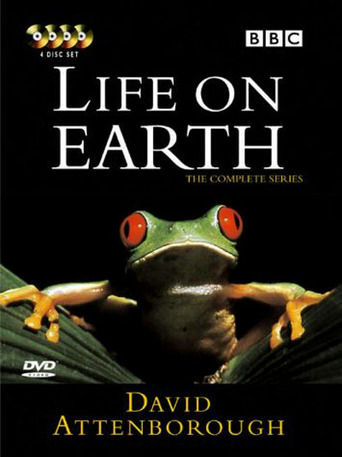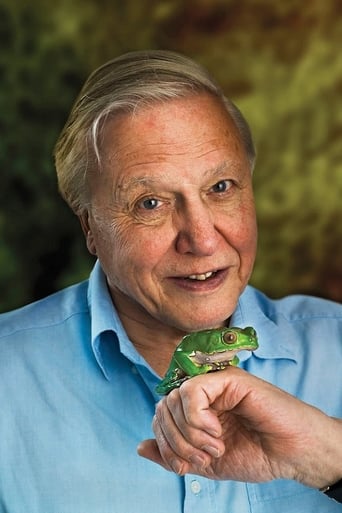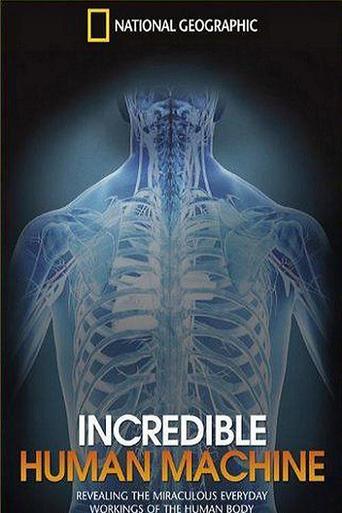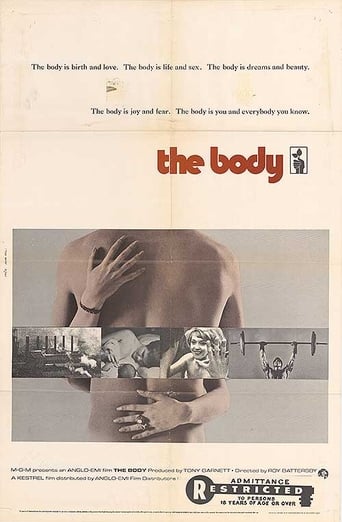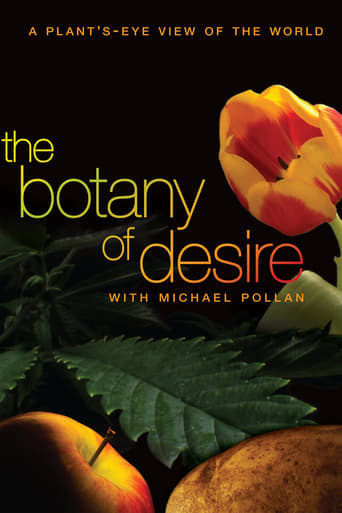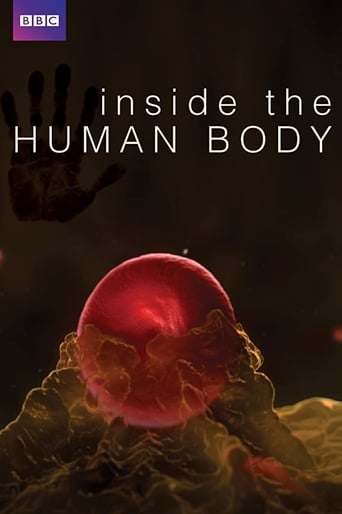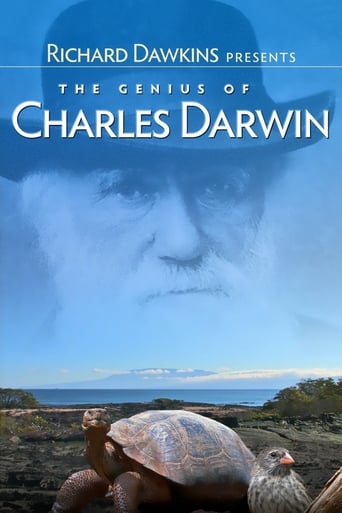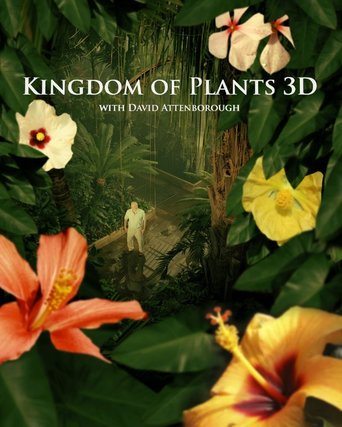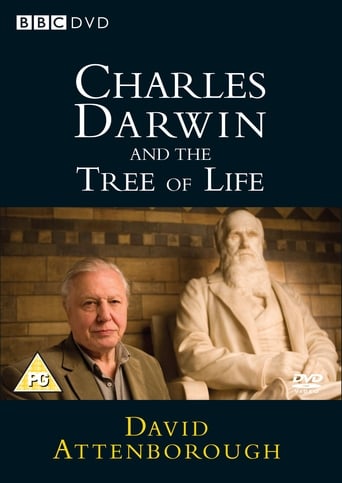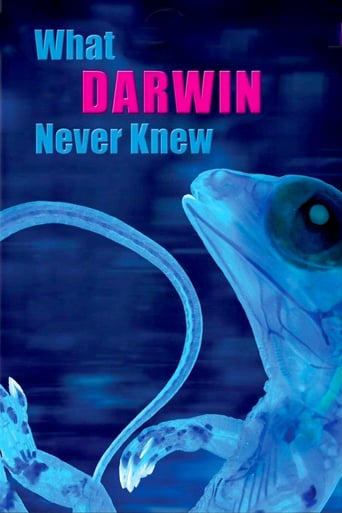Life on Earth (1979)
David Attenborough's groundbreaking study of the evolution of life on our planet.
Watch Trailer
Free Trial Channels
Cast


Similar titles
Reviews
This is How Movies Should Be Made
Good concept, poorly executed.
Clever and entertaining enough to recommend even to members of the 1%
One of the film's great tricks is that, for a time, you think it will go down a rabbit hole of unrealistic glorification.
David Attenborough is nothing short of a national treasure. He may apparently dislike the term, but it is hard to not say that about such a great presenter who has contributed significantly to some of the best programmes (of the documentary genre and overall) the BBC has ever aired/produced.It is really hard picking favourites, let alone a definite favourite, among what Attenborough has done because he has done so many gems, it is the equivalent of trying to choose your favourite ice cream flavour or your favourite operatic role (for examples) and finding you can't pick. When it comes to talking about Attenborough's work, one cannot mention his all-time best best work without putting his first masterpiece 'Life on Earth' up there. It was a ground-breaking milestone for documentaries, television and anywhere, and to this day it is still an awe-inspiring work that is unlike anything one hadn't, and has, seen before. On the most part the BBC can only dream of having something this amazing or influential, and under forty years on it's one of their greatest achievements.Visually, it must have left viewers in shock and awe at the beauty and uniqueness of the images and they have held up incredibly today. Perhaps not quite as polished or as refined as some of Attenborough's recent efforts, but as amazing his recent work looks they don't quite have 'Life on Earth's' originality, awe or haven't-seen-anything-like-it feel that sets it apart. It is gorgeously filmed, done in a completely fluid and natural, sometimes intimate (a great way of connecting even more with the invertebrates), way and never looking static. There are some beautiful shots and editing that is never rough and always cohesive. The scenery is richly magical and appreciatively diverse.In terms of the music score, it is one of the best and most dynamic scores of any of Attenborough's documentaries, almost cinematic in places. The main theme is unforgettable and gives the immediate impression of "as soon as the theme plays one knows they're in for a treat." Again, like so many Attenborough nature/wildlife documentaries, 'Life on Earth' fascinates, teaches, moves, entertains and transfixes. In terms of the facts there was a very good mix of the known ones and the unknown, some facts being familiar to us while going into detail about the different aspects/topics. Things that has left me indifferent prior to watching 'Life on Earth' then became seen in a different and more appreciated light. Evolution of life on Earth has never been more fascinating or engrossing since.Narration by Attenborough helps significantly. He clearly knows his stuff and knows what to say and how to say it. He delivers it with his usual richness, soft-spoken enthusiasm and sincerity, never talking down to the viewer and keeping them riveted and wanting to know more.The conflict has genuine tension and suspense, there is some fun and a lot of emotionally powerful moments done with a lot of tear-jerking pathos. Found myself really caring for what we're told. Like much of Attenborough/BBC's other work, each episode doesn't feel like an episodic stringing of scenes, but instead like the best nature documentaries each feels like their own story and journey, with real, complex emotions and conflicts and animal characters developed in a way a human character would in a film but does it better than several.Overall, ground-breaking documentary series that has so much more to it than that. 10/10 Bethany Cox
Life on Earth is a comprehensive analysis of Life on this planet, ranging from the beginnings of life to the evolution of Homo sapiens. The individual episodes are chronological in relation to the colonisation and evolution of life generally. So the very first episode starts with the early earth and the environments found upon it, the last being about the great apes, with an emphasis on humans.Life on Earth explains masterfully very complex and important concepts in Biology, going so far as to describe and explain DNA and how evolution changes it. Key concepts like these are explained using certain "case studies", i.e. specific species which are entertaining (and often funny) for the spectators, that inherently pertain to the subject being discussed. So, for example, the evolution of camouflage is analysed using the peppered moth, which changed during the industrial revolution because of the smog which blackened the trees.Attenborough, nowadays, has a legendary reputation as the founder of accurate and entertaining wildlife film-making. And this is where it all started. This series is the base structure of every wildlife documentary ever made in and after the 80's. Attenborough is both a masterful story-teller and modest teacher, skillfully avoiding the two most fatal flaws in presenting, that still goes on today. Firstly, he avoids "telling" the spectators what to think or see as opposed to "showing" it to them, so they can make their own minds up, where many presenters use patronising language or over simplified explanations. And also, Attenborough remains humble throughout the whole process. Presenters today (2012) like Prof. Brian Cox seem pretentious in comparison, often appearing suddenly from behind pillars or speaking meaninglessly with the sun pointing towards the camera. Essentially, they use clever cinematography to waste screen time and "waffle" to use a technical term. Attenborough merely uses his presence as an aid for the audience, even as a guinea pig occasionally.If you haven't seen this documentary and you are often inclined to watch such a program, get the box set now. It will be the best £15 you have ever spent, and you could learn a surprising amount about nature. I know I did.HAIL! Sir David!
Sir David Attenborough is best known for his spectacular natural history projects like "Trials of Life", "Life of Plants", "Life in the Freezer" and this one, "Life on Earth", which made him one of the most characteristic and most-loved television personalities in the history of British television. He also has one of the longest careers in television of anyone still on the air today. Joining the BBC in 1952, he first became a producer for the Talks Department, which handled all non-fiction broadcasts. Originally discouraged from appearing on camera because an administrator thought his teeth were too big, he did went on presenting "Zoo Quest", an educational program featuring animals from the London Zoo, which first aired in 1954. From 1965 to 1969 David Attenborough was the main Controller for BBC2, where he was responsible for the introduction of the first television broadcasts in colour in the UK and soon after he also initiated televised snooker. Many might loath him for the latter, but starting with "Life on Earth" he went on to produce a series of natural history documentaries of truly epic proportions. It was the first in a mammoth trilogy, together with "The Living Planet" (1985) and "Trials of Life" (1990). He showed to have a real talent for screen-writing and presenting skills combined with an expert knowledge of natural history. With his irresistible flair and talent for presentation coupled with stunning cinematic images and a beautiful music score, this was a truly groundbreaking series.Whilst having seen the individual episodes on television several times now, for reviewing I prefer the two-hour VHS-version from 1985, at that time a newly re-edited BBC video-release from the original 16 hour series. Watching this version, it plays much more like a feature film. With the featured geological and ecological time-scale, combined with a perfect integration of sound and image, it's as close a documentary - at least a nature documentary - has ever got to achieve something almost purely cinematic in expression. Still active at 80 years old, Attenborough is currently filming for his latest project, "Life in Cold Blood", a series about reptiles and amphibians, due for completion in 2008.For any (aspriring) biology teacher, show this two-hour version to a group of children in class, and you will never have to answer unnecessary questions about evolution and ecology again.Camera Obscura
The opening music - redolent of `Also Sprach Zarathustra' - still sends a shiver down my spine. One hears it and just KNOWS that this is one of THE ground-breaking television documentaries of all time. Some of the detail is bound to be outdated by now; but so far as presentation is concerned, `Life on Earth' is timeless, wearing its years far more lightly than `Cosmos' does, or than `The Civil War' will.The title says it all. Attenborough is giving us nothing less than the story of life on Earth, from the beginning to the present, but concentrating on a few key innovations (episodes bear titles like, `The Invasion of the Land', `A Watertight Skin', `Pouch and Placenta', and so on). The other emphasis is on the poetry of life on Earth. So it's not an even-handed history. What we're getting is a look at the origin of particular things alive today: so birds get much more attention than trilobites; animals get more attention than plants; mammals get more attention than insects; and we hominids have a whole episode to ourselves. This is as it should be. When cockroaches start making documentaries, they can concentrate on what interests THEM; but tough luck, they can't, so it's our show. All the same, watching the final episode (`The Compulsive Communicators'), AFTER having watched all the preceding episodes, gives us a stronger feeling of our true place in evolutionary time than any number of diagrams or Carl Sagan calendars.This gets my vote for being Attenborough's best work, the best television documentary ever made, and possibly (not that I know enough to judge) the BBC's greatest achievement. It's long overdue for a re-screening.

